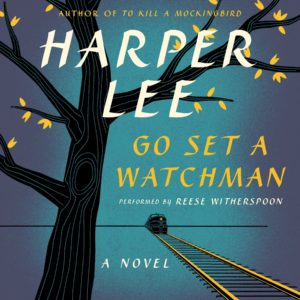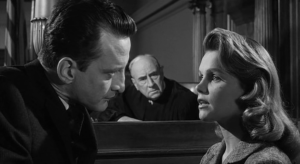Harper Lee, Misogynist
After all the fuss about the release of Harper Lee’s second/first novel, Go Set A Watchman, I broke down and read it. My wife, after all, had purchased the book, so I was just maximizing the value of the family purchase.
As I neared the novel’s end, my thoughts were in line with a number of the reviews I had read — not a great novel, but well-meaning. It’s slow getting started, earnest in its intentions, weak on plot, contains some flashes of very fine observation of Southern society, and tussles with the central issue of the late 1950s in the South: how to respond to the Supreme Court’s ruling in Brown v. Board of Education that public schools in America could not be racially segregated.
The heroine, Jean Louise Finch, has returned from New York and discovered to her horror that her sainted father (Atticus Finch, a/k/a Gregory Peck of the movie To Kill A Mockingbird, Lee’s other book) is playing footsie with the bigots and nigger-haters in town over ways to slow down the racial integration that white Southerners are not ready for.
So Jean Louise (finally) begins to confront her father, her fiancee (sadly, not quite up to her social status), and her elliptical uncle over this essential challenge when Uncle Jack manages to make her see reason, courtesy of a couple of quick shots to the jaw.
That’s right. Uncle Jack causes Jean Louise to understand the Southern white position by slugging her in the face. Not once (a “savage backhand swipe”), but twice (her head “met his hand coming viciously back”). He is merely, Uncle Jack explains, “trying to attract your attention.”
After that appeal to sweet reason, Jean Louise has an epiphany, seeing the wisdom of the go-slow crowd led by her father. Those punches to the head also help her confront her lifelong hero-worship of Daddy, and reconciles her to a life spent cozying up to the troglodytes of the fictional town of Maycomb, Alabama, to help them get used to the outlandish idea that black people might actually be people and not some intermediate form of species between apes and humans.
Really? Am I the only one who — putting racial politics aside, if that’s possible when dealing with Lee’s books — who cringed at the suggestion that beating up a woman was the way to get your point across? I have read a least a dozen articles and reviews about the book and still was entirely unprepared for this hateful plot device.
I made two quick associations between Watchman‘s embrace of violence against women and other contemporaneous examples. The wonderful movie Anatomy of a Murder (1959) focuses on the marriage between a flirtatious woman (Lee Remick) and a jealous soldier (Ben Gazzara). When the husband has to answer for slugging his wife after she was raped by another man, he explains that she was “hysterical,” and he was simply helping her calm down. His wife then has to parrot the same contemptible explanation. Really? That’s okay?
And then there is Lee’s legendary Mockingbird novel, which pivots on the rape trial of a one-armed black man, Tom Robinson, accused of attacking a white-trash woman. As Malcolm Gladwell laid out cogently a few years ago, Atticus Finch’s supposedly heroic courtroom defense of Robinson (white Southern lawyers simply didn’t do such things) involved principally blaming the rape victim for enticing Robinson and luring him on. In other words, the black man’s rights were to be upheld by stomping on the woman’s. Not an unusual rape defense, of course, but one with significant misogynistic elements.
Watchman‘s bizarre and off-handed reliance on physical abuse of a woman to bring its plot to a close seems to be an artifact of a time when the social consensus against such violence was weak, at best. Lord, I hope that has changed, but I still am bothered by the question I raised before: Hasn’t anyone else noticed? Shouldn’t the “watchman” in Lee’s book, and in our lives, be watching out for beating up women, too?


Thank you. Like you, I’ve read many reviews of Watchman and this is the first I’ve heard of the violence against Jean Louise and the rationalization for it.